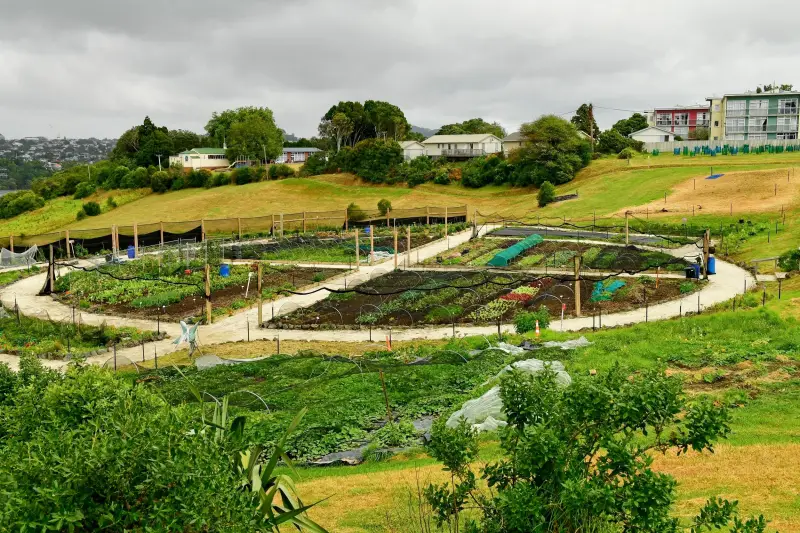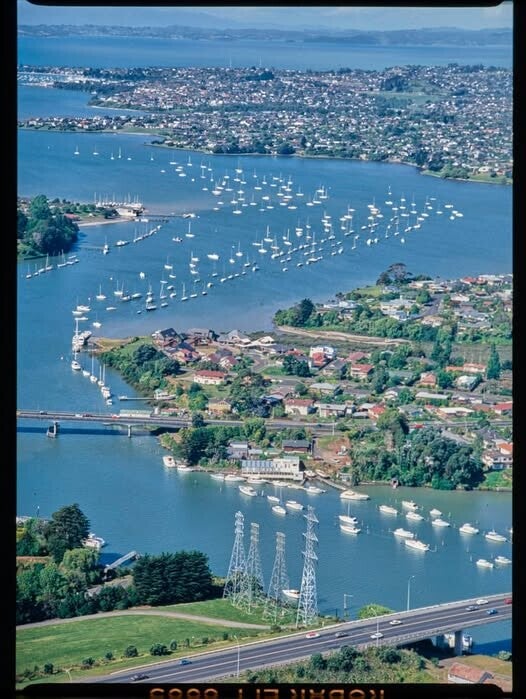Whatchu talkin' 'bout, Wyllis?
Here, one journey flows into the next.
We welcome you to immerse yourself in our shared history, celebrating the people and places that have brought us to this moment.
Come, and be a part of the legacy we are writing together.

Kia ora e te whānau, 'ask not what your iwi can do for you, ask what you can do for your iwi' (quote paraphrased from some famous person ;> )
I am Wyllis Maihi. I am a husband, father, grandfather, a builder, a teacher, an all-around good guy, and a descendant of Ngāti Whātua. I have over 30 years of experience in the building industry and project management, and over 15 years working with young people. I have served on multiple governance boards, including the Ngāti Whātua Ōrākei Reserves Board, where I work alongside Desley Simpson and Scott Milne.
Recently, at the Remuwera meet the candidates, I was asked what my priority would be if elected. For me, it wasn’t what, but who. Our elderly and young people are my priority. I will look at how we can further support our community facilities, parks and programs that help address issues such as loneliness and mental wellbeing, looking at the current and upcoming aged care plan. Also, what is being done to support our young people's resilience and strategies to minimize exposure to current evils like drugs and violence. This requires less talk and more action. We need to work out how to best care for our elderly and youth. Furthermore, I want to quickly cover three simple questions:• Why me?• Why now?• Why not?
Why Me? As I mentioned, I am of the local iwi, Ngāti Whātua. I am the tenth generation in Tāmaki, and my grandchildren make it the twelfth. We are here for the long haul—totally, intergenerationally invested. Because of this, I can confidently say this city and this community were built on the generosity and goodwill of my ancestors. For many generations, they have seen its ups and downs. They have seen people come and go, and they have been on the end of some horrific decisions made that have severely affected the well-being of our community, the environment, and our ability to make decisions in our own neighborhood.These negative impacts nearly pushed Ngāti Whātua to the brink of non-existence as a community. However, I’m proud to say Ngāti Whātua is still here, and I am here. I am here to help rebuild that generous vision, to work at it on a local level, and most of all, to work together.
Why Now? "He wā te wā," no time is better than the present. On September 18th, we celebrate 185 years since my ancestor Apihai Te Kawau gifted land to establish the city of Tāmaki Makaurau, Auckland. Apihai’ support was based on a vision of mutual benefit and a desire for protection and stability for his people. Apihai supported Hobson and who he represented: he signed Te Tiriti, he invited Hobson to Auckland, he gave over 3,000 acres of land, and he established a relationship he hoped would last. Apihai and the successive leaders work hard to make Tāmaki a thriving capital. Ōrākei was, and is, its ground zero—the HQ for the city of leadership. That is why now—I am here to fulfil that call to help, to support, and to provide the leadership that is needed on the current local board.
Imagine the HQ is in your backyard and you're not even part of the team.
I've worked with some of the C&R team, including Desley, Scott, and David Wong, and they've done good things. But like any good All Blacks game, momentum shifts. When you see that shift, you need to bring on some impact players. I am one of those impact players. My uncle had a saying: There are three types of people—doers, don'ters, and won'ters.I am a doer. I bring new energy and focus, and my support team, Ngāti Whātua, has the experience. We are the movers and shakers, the progress makers—one solution, one event, and one decision at a time. It’s time for a change. Send in the subs. Let’s take it up another notch.
Why Not? Because we don’t need the same old, same old. I stand as an independent, not as a team, not as a political party. my only obligation is to the community that I serve. But I can draw on a depth of community resource that this board needs. Let’s mix up the team. My support team are taiao champions, sustainability proponents, and pollution problem solvers and home builders. Most of all, they are people-focused. As the saying goes...• He aha te mea nui o te ao? (What is the most important thing in the world?)• He tangata, he takiwa, he take. (It is people, it is place, it is purpose.) (Thanks Tame I)
To finish, I am not a rookie at this. I am a seasoned impact player. I am driven by the people, Orakei is the place , and our community is the purpose. I am part of a great community—the Ōrākei Local Board community. I can deliver, vote for me. I am Wyllis Maihi. Locally bred, locally led. Support local.
What Makes a Good Leader?
I've seen a lot of leaders, and I always come back to this question.
A leadership title or position is no guarantee of a good leader. One translation for the Māori word for leader, rangatira, is 'a weaver of people'—someone who brings people together. I don't see that happening enough. Some say true worth is revealed over time, and their mana is seen in their actions and outcomes. So, what is it?
I think back to my own examples. The truest form of leadership, or rangatiratanga, was shown to me by my grandparents. Their example became my guiding principle: "If service is beneath you, then leadership is beyond you."
So, maybe 'service' is the key factor.
My grandmother, a true servant leader, embodied service and aroha for our whānau. From her, I learned that happiness is found in doing things for others. My grandfather taught me to do the right thing, to work hard, and to be grateful for what I had. He showed me that true leadership is not a pursuit of mana, but is rooted in care for whānau, putting food on the table, paying the rent and representing our people when required. Both of them just got on with it, quietly, often uncelebrated work, with mana.
They embodied the saying, ‘A leader is best when people barely know he exists when his work is done, his aim fulfilled, they will say: We did it ourselves’. Lao Tzu
This philosophy reminds me of our elders who performed the most rangatira work without pay or recognition, simply doing the do. What drove them?
This silent mahi of serving others is everywhere: in the aroha of our teachers and health workers, in the social workers who manaaki the most vulnerable, and in the volunteers and many more, who hold the line for a kaupapa they believe in. These unseen warriors are the heart of our society, they are true leaders. So next time you see them, those servant leaders, rangatira, warriors, show them some appreciation and if they're up for it, give them a hug.
That being said, I put my hand up to... lead or serve or something else? Well, I'm still working that out. That's why people often say to me, Whatchu talkin' bout Wyllis?



"In diversity there is beauty and there is strength"
Maya Angelou,
As part of a team of community leaders, I have the privilege of watching an incredible moment unfold. Nearly every month, people from all over the world gather to receive their citizenship certificates. It's so much more than a piece of paper; it’s the moment they officially belong to Aotearoa, New Zealand.
From my vantage point, I get to witness the joy and the 'finally' look. Along with the words of welcome, we encourage the new citizens to honor their heritage while embracing the rich cultural fabric of our nation. It’s a powerful message. We don’t want them to forget the countries they came from or for their children to lose their roots. Instead, we want them to take their unique stories and traditions and weave them into our shared home.
The ceremony beautifully highlights the idea that in diversity, there is both beauty and strength. It reminds me of Kofi Annan's words: "We may have different religions, different languages, different colored skin, but we all belong to one human race."
The ceremony ends with a simple, profound welcome in te reo Māori: Nau mai, haere mai. It’s a perfect final touch, a sincere and heartfelt invitation to belong. (Aug 2025)
I AM
"I am not what happened to me; I am what I choose to become," by Carl Jung
Stepping into Dinesh's corner shop isn't just about buying a carton of milk or a loaf of bread. It's an act of supporting a man and his family who have faced more than their fair share of hardship. Dinesh has weathered smash-and-grabs, verbal abuse, and the constant pressure of a changing world. Look past the cages and see, he's still here, his small shop a testament to his incredible resilience. He's not just a shopkeeper; he's a member of our community, a symbol of quiet strength in the face of adversity. By rocking up to his store, you're not just making a purchase; you're casting a vote for local heroes who refuse to give up, despite all the reasons they might have to.
Every purchase you make helps keep this local legacy alive. It's a way of saying, "We see you, Dinesh, and we stand with you and your whānau." So next time you need a snack, a newspaper, or just a friendly face, consider stopping by his shop. You'll not only be getting what you need, but you'll also be contributing to the enduring spirit of our community and helping a truly deserving family continue to thrive against all odds. #Support Local.
(July 2025)

Co-governance?
Questions from the whenua. Do you support co-governance?
“Co-governance” has its pros and cons. Supporters argue it leads to fairer decisions by including diverse voices, fostering collaboration, and building trust. Critics, however, worry about power sharing, potential gridlock, the need for consensus and unclear accountability. Arguments about who should be making the decisions? Ultimately, co-governance's success depends on a willingness to compromise and cooperate, as the "my way or the highway" approach simply doesn't work. Its a relationship.
My personal experience, in the past I had more moments of being a ‘my way' sort of guy, but now, the 'our way' seems to be working better. My wife and I have 3 great girls and now, we have awesome grandchildren. I also sit on a successful co -governance board, partnership in action. So yes, I support “co-governance.”

ON YA BIKE!


Feeling Connected
(Video - Te Reo Māori)
In this video, I share my connection and whakapapa to this area of Panmure. It's a place where my ancestor, Maihi Te Hinaki, once lived with his kin in the Māori villages of Mauinaina and Mokoia. Although the landscape and people have changed over time, the connection still remains. I made this video for my grandchildren, my mokopuna, which is why I am speaking in Māori.